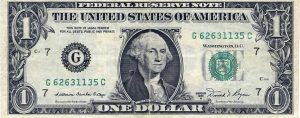Tethered To Reality
 People are happy. Well, some people. People who have owned bitcoin for a while and are now reveling in the massive price increase are definitely happy. It would be hard to be upset when an asset you own has increased so dramatically in value. Therein lies the root of concerns, though. Why has bitcoin increased in value so dramatically, so rapidly? Why now? Market conditions haven’t really changed. In the language of bitcoin believers, supply hasn’t changed dramatically, the fundamentals are relatively unchanged, so has demand increased so significantly as to explain this price increase? In a way, it may have. The use of Tethers as a proxy dollar has given a small group of people the ability to toggle supply and demand, and thus price, in the bitcoin economy.
People are happy. Well, some people. People who have owned bitcoin for a while and are now reveling in the massive price increase are definitely happy. It would be hard to be upset when an asset you own has increased so dramatically in value. Therein lies the root of concerns, though. Why has bitcoin increased in value so dramatically, so rapidly? Why now? Market conditions haven’t really changed. In the language of bitcoin believers, supply hasn’t changed dramatically, the fundamentals are relatively unchanged, so has demand increased so significantly as to explain this price increase? In a way, it may have. The use of Tethers as a proxy dollar has given a small group of people the ability to toggle supply and demand, and thus price, in the bitcoin economy.
The introduction of Tethers by Bitfinex, ostensibly owned by another murky company that is “unrelated” to Bitfinex, was apparently in response to losing transfers denominated in U.S. dollars (USD) due to a banking decision. Moving recognized currencies in and out of cryptocurrency exchanges has long challenged exchange managers, as the transparency requirements of the banking industry are opposite the idealistic requirements of a user community that prizes anonymity. At this point the operators of Bitfinex, who go to great lengths to avoid explaining who actually runs the firm, were faced with a disastrous position. Not only had the exchange suffered a significant hack and provided “tokens” as recompense, the company was now in a position of being unable to move USD in and out, a potential business killer. So how does one move dollars around without moving dollars around? Make it up!
That’s exactly what Tether has done for Bitfinex. Acting as a “peg” to the dollar, Tethers are promised to be worth exactly the same in USD, and claim to be backed by verifiable reserves that are in fact anything but verifiable. So Bitfinex had made itself whole again, offering users the next best thing to dollars, and repaying funds lost to their “hack” in a way that didn’t cost the mysterious folks who run the firm anything. This timeline is similar to what occurred at the exchange BTC-E, demonstrating perhaps a learning curve from the earlier disasters at Mt Gox Cryptsy. Customers can’t cry “fraud” if the firm provides repayment, at least in theory. The fluidity of cryptocurrencies and value versus the dollar provides a significant amount of grey area in which to make exchanges that profit whoever controls the largest quantity of bitcoins, in this case Bitfinex. But what if the price of bitcoin went down?
This is the second key element of Tether, and the value it represents for Bitfinex. Because unregulated exchanges provide no transparency in their order books, they are free to abuse traders. Now, with Tethers, which are essentially printable at whatever rate Bitfinex prefers since the “reserves” are falsifiable and the company that owns Tethers is potentially a front for the same interests that control Bitfinex, the operators can print their own money, injecting it into trading, and manipulating trading to ensure the price of bitcoin goes up, or at least stays above a certain level. Getting greedy, the same operators could wait for large short positions to accrue, and then push the price higher, liquidating these positions to benefit the exchange. Or perform the converse for long positions, oscillating between whatever movement benefits the owners. For complete security, Tether is also illiquid, meaning no entity can purchase sufficient Tethers to alter the value. Simple. Easy. All controllable with the pieces that Bitfinex already possesses.
As long as the price of bitcoin goes up, users and investors are happy. Happy people don’t go to court. It is unlikely, though, that Bitfinex will continue to avoid the scrutiny of users and regulators, as the scope of the scheme they are involved in continues to grow, both in terms of longevity and theoretical value. Theoretical? Oh yes, it is worth mentioning that users who have bitcoin or Tethers on Bitfinex appear to be unable to exchange them for USD. But why would you want USD when you can have Tethers? Same thing, right? My local grocery store accepts Tether, so does my coffee shop. Tether is on an auditable blockchain not owned by any one group, right? Oh…
Image credit – “USA : 1 US Dollar : obverse” by Miran Rijavec is licensed under CC BY 2.0

![[Guest Post] The True Use Cases for Bitcoin and Its Role in Banking the Unbanked](https://coinreport.net/wp-content/uploads/2019/04/Ray-Youssef-Paxful-CEO-400x230.jpg)











Hi Brian. In the last 24 hours or so, Bitstamp and Bitfinex have been pumped whenever a BCH rally gets started. Looks like these two events are connected. Is there anything that we can do to stop this activity?
Thanks!
Rich
After lots of try finally I got a free online game website of the how to get robux for free. This is really very close to every game user who want to enjoy and fun